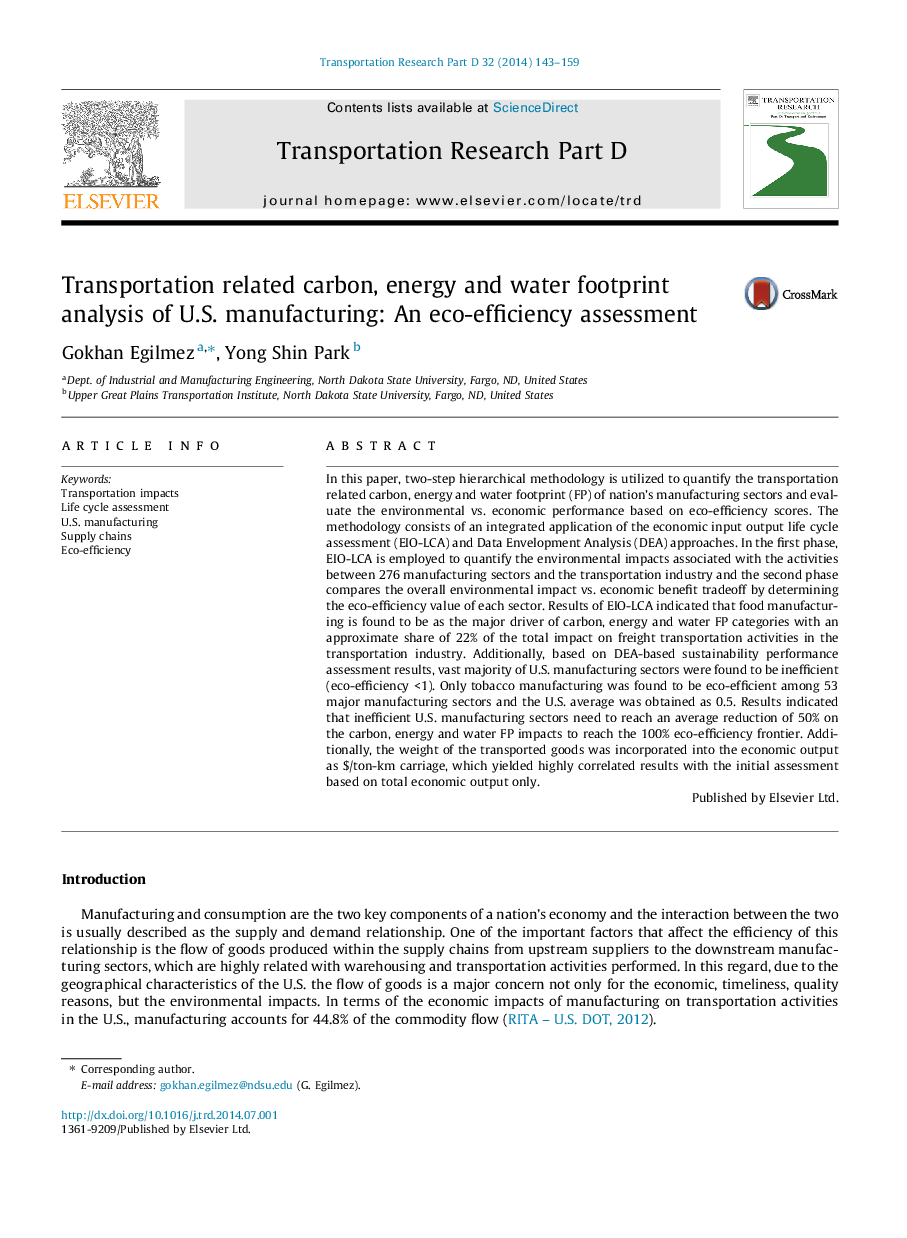| Article ID | Journal | Published Year | Pages | File Type |
|---|---|---|---|---|
| 7500877 | Transportation Research Part D: Transport and Environment | 2014 | 17 Pages |
Abstract
In this paper, two-step hierarchical methodology is utilized to quantify the transportation related carbon, energy and water footprint (FP) of nation's manufacturing sectors and evaluate the environmental vs. economic performance based on eco-efficiency scores. The methodology consists of an integrated application of the economic input output life cycle assessment (EIO-LCA) and Data Envelopment Analysis (DEA) approaches. In the first phase, EIO-LCA is employed to quantify the environmental impacts associated with the activities between 276 manufacturing sectors and the transportation industry and the second phase compares the overall environmental impact vs. economic benefit tradeoff by determining the eco-efficiency value of each sector. Results of EIO-LCA indicated that food manufacturing is found to be as the major driver of carbon, energy and water FP categories with an approximate share of 22% of the total impact on freight transportation activities in the transportation industry. Additionally, based on DEA-based sustainability performance assessment results, vast majority of U.S. manufacturing sectors were found to be inefficient (eco-efficiency <1). Only tobacco manufacturing was found to be eco-efficient among 53 major manufacturing sectors and the U.S. average was obtained as 0.5. Results indicated that inefficient U.S. manufacturing sectors need to reach an average reduction of 50% on the carbon, energy and water FP impacts to reach the 100% eco-efficiency frontier. Additionally, the weight of the transported goods was incorporated into the economic output as $/ton-km carriage, which yielded highly correlated results with the initial assessment based on total economic output only.
Related Topics
Life Sciences
Environmental Science
Environmental Science (General)
Authors
Gokhan Egilmez, Yong Shin Park,
